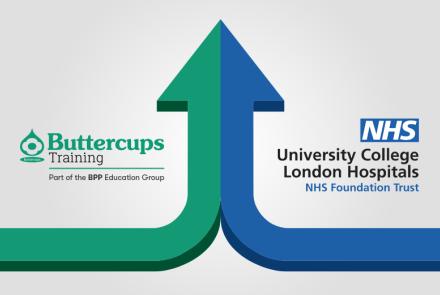Professional Update For Superintendents - Number 14
ACCESSIBLE INFORMATION STANDARDS
This should be old news now; from July 2016 all health and social care providers fell within the scope[1] of the Accessible Information Standards (AIS). PSNC and Pharmacy Voice have provided an excellent briefing on what is involved. Briefly, your pharmacies must now ensure that users are asked whether they have any communication or information needs, you must record and flag those needs and their solutions in your records, share (with consent) such information with other health and social care professionals and take reasonable steps to respond to those needs. Full details are on NHS England website and CPPE offers training on how to prepare and comply.
REPEAT MEDICATION REQUESTS
PSNC and Pharmacy Voice have also produced a briefing on how to respond to any local moves by GP practices (Luton model) or CCGs (Coventry model) to restrict pharmacies from ordering prescriptions on behalf of patients. Reverting to such models has many adverse implications for patient safety and convenience as well as clunky procedures, lost scripts, poor governance and efficiency. The briefing suggests how to identify relevant issues, highlights the value of a properly instituted NHS Repeat Dispensing scheme and sets out clear ethical principles for their proper operation.
GPHC STANDARDS FOR PHARMACY PROFESSIONALS
Formerly Standards for Conduct, Ethics and Performance, the GPhC consultation responses were presented to the Council meeting on 8th September (p133) and are due to be adopted, with an implementation date, at the next meeting on 26th October 2016. No changes are proposed to the new nine top level standards but further guidance will emerge during 2017 and 2018. This may include guidance for non-registered staff who affect the provision of pharmacy services and a change of policy on the conscience clause. Concerns about the impact on professionalism of the commercial environment in community pharmacy may also require further guidance, arising from autumn workshops on workplace pressures.
REBALANCING PROGRAMME
Regulations to bring in defences against strict liability for inadvertent dispensing errors are now expected in the autumn of 2016. The original draft regulations are here.
Regulations came into force in March 2016 which strengthen the GPhC's powers to sanction pharmacy owners if they are found to be unfit to carry on their business safely and effectively. A new power of interim suspension of registration is in place and the GPhC now has power to publish "inspection ratings" when the wording has been agreed.
The 19 proposals to rebalance the responsibilities of Superintendents and Responsible Pharmacists (first discussed in December 2013) are now likely to be under active discussion at future board meetings. These include
- removal of current restriction of one superintendent per retail pharmacy business
- power for the GPhC to set detailed standards for superintendents
- power for the GPhC to decide whether a pharmacist can be RP for more than one pharmacy and to set requirements in respect to the absence of the RP
These proposals constitute "organisational governance" of a registered pharmacy; detailed proposals for "transactional governance" - that is supervision - of medicines supply should be discussed at the next board meeting, particularly with respect to clarifying the roles of pharmacists, pharmacy technicians and other trained staff.
EVIDENCE OF ENGLISH LANGUAGE SKILLS
Draft regulations (p60) will come into force later this year to allow the GPhC to require evidence of indemnity insurance at registration and renewal of registration; applicants must also demonstrate knowledge of English necessary for practice at registration and an allegation of inadequate knowledge of English necessary for practice may constitute grounds for an FTP enquiry.
DEMONSTRATING PROFESSIONALISM ONLINE
GPhC guidance published in July 2016 sets out what is expected of pharmacy professionals when using social media. They have the same responsibilities and obligations when interacting online as they do when interacting face-to-face.
AMENDMENTS TO THE HUMAN MEDICINES REGULATIONS 2012
These controversial proposed amendments, including extension of "hub and spoke" models and adding the cost of dispensed medicines to their labels have not gone away. Consultation closed in May 2016 and the DH website says responses are being analysed.
Prepared on 7th October 2016 by Joy Wingfield, pharmacy academic and consultant. All links correct at time of posting.
Would you like to join the Pharmacy Law and Ethics Association? It is for pharmacists who are interested in law and ethics and lawyers or ethicists who are interested in pharmacy. Annual fee currently £25 (even to RPS members). Visit www.PLEA.org.uk for details of how to join.
[1] Legal requirement under s250 of the Health and Social Care Act 2012







